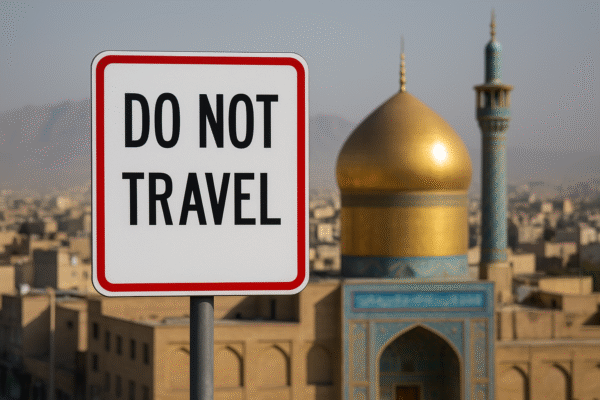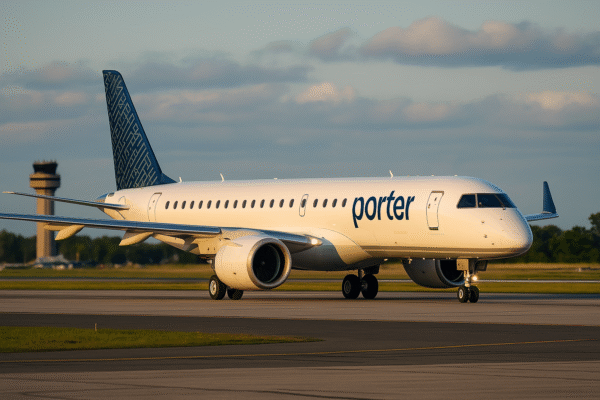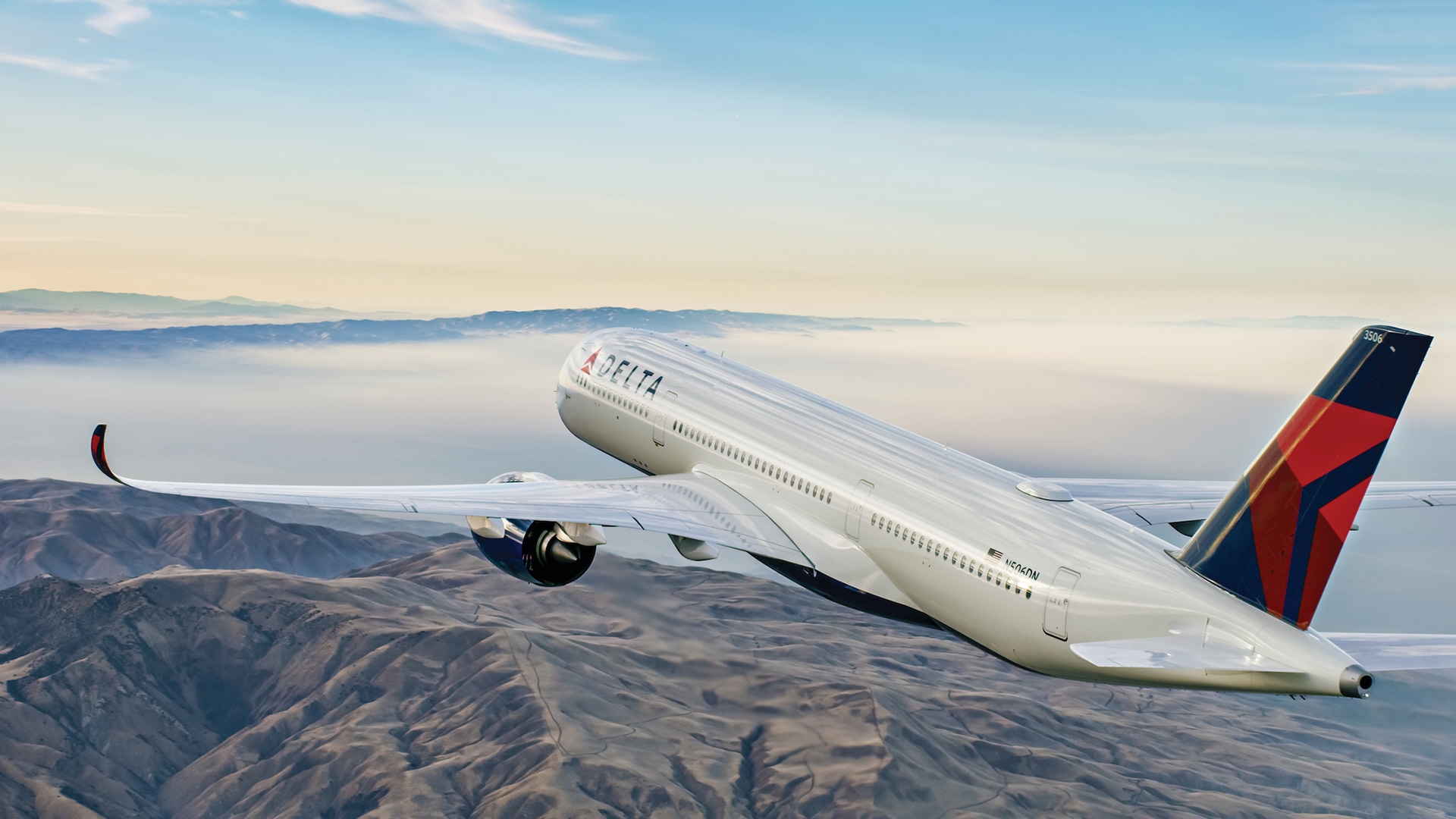Delta Air Lines, one of the largest U.S. carriers, has recently implemented a bold strategy to avoid high tariffs on European aircraft imports—an approach now rippling across the global air travel and tourism industries. As trade tensions between the U.S. and the European Union lead to increased tariffs on aircraft imported from Airbus, Delta’s temporary workaround—engine swaps and deferred aircraft deliveries—has sparked serious discussions about long-term implications for international travel.
While the airline’s creative tactic may minimize immediate financial burdens, the wider consequences are far-reaching: flight delays, capacity cuts, higher airfare, and reduced competition on key global routes are becoming more evident.
The Root of the Problem: U.S.-EU Aircraft Tariffs
The U.S. has imposed tariffs on European-made aircraft, notably targeting Airbus in retaliation for longstanding trade disputes over aerospace subsidies. These tariffs significantly increase acquisition costs for American carriers purchasing new planes from Airbus.
For airlines like Delta, which rely heavily on a mixed Airbus-Boeing fleet, the added financial weight of tariffs could disrupt expansion plans, push operating costs higher, and shift procurement timelines. In an effort to sidestep these tariffs, Delta is reportedly removing engines from newly manufactured Airbus jets, thereby categorizing the fuselage as non-complete and avoiding import taxes. The engines are later reinstalled domestically.
Fewer Aircraft, Fewer Flights: The Effect on Global Capacity
While Delta’s tactic is resourceful, it comes with a trade-off—a temporary reduction in the number of aircraft entering service. This naturally limits the airline’s ability to scale operations or restore pre-pandemic frequencies on global routes. As new aircraft are grounded or delayed, passenger seat capacity declines, especially on long-haul international routes between the U.S. and Europe, Asia, and Latin America.
Tourists looking to book travel to high-demand seasonal destinations or lesser-known international gems may find fewer flight options, especially outside of peak periods. Off-season travel, a lifeline for many tourism economies, could shrink as airlines prioritize profitable routes over niche or regional connections.
Flight Delays, Cancellations, and Travel Disruption
With aircraft deliveries postponed, the already fragile global flight schedule could be further strained. Airlines may struggle to rotate their fleets efficiently, resulting in more frequent flight delays, cancellations, and last-minute changes—a trend that already challenges the post-pandemic recovery in air travel.
According to aviation analysts and data from FlightAware and Cirium, global flight delays have been creeping upward since late 2024, especially for long-haul departures from major U.S. hubs like New York, Atlanta, and Chicago. Now, with delivery timelines pushed even further, tourists may find themselves navigating unpredictable schedules, particularly when traveling internationally.
Higher Airfare for International Travelers
Perhaps the most immediate and visible impact of Delta’s workaround is the potential rise in ticket prices. With a constrained fleet and limited seat availability, airfare on transatlantic and transpacific routes may trend upward throughout 2025.
Airlines often pass on increased operational costs—such as maintenance, fuel, labor, and now tariff-related logistics—to passengers. As a result, both economy and business class fares are likely to rise, particularly during peak travel windows like summer and the year-end holiday season.
This cost inflation could price out budget-conscious travelers, particularly those heading for long-haul trips to Europe, Asia, or South America. Emerging tourist destinations dependent on international visitors may also feel the impact as flight accessibility decreases.
Changing Route Maps and Reduced Airline Competition
As Delta and other U.S. carriers rethink their fleet strategies, travelers can expect to see altered or reduced service on specific routes. Airlines are likely to shift their limited aircraft toward the most profitable transcontinental flights, suspending or reducing frequency on others.
This shift could disrupt the competitive balance of international aviation. Fewer competitors on a route means less incentive to offer low fares or new services. Tourists traveling to cities like Lisbon, Reykjavik, or Osaka—often served by limited carriers—may face reduced choices, longer layovers, or higher costs.
Global Tourism Outlook: Ripple Effects Ahead
Delta’s approach, while addressing a short-term economic issue, opens the door to long-term implications for global tourism. Travel-dependent countries—particularly in Southeast Asia, Southern Europe, and the Caribbean—could see declining arrivals if long-haul flights become costlier or less frequent.
According to the World Travel & Tourism Council (WTTC), international tourism generated over $1.9 trillion USD globally in 2023, with air travel accounting for more than 70% of international tourist arrivals. Any prolonged disruption in flight availability, route consistency, or pricing will naturally cause ripple effects across the tourism supply chain—from hotel occupancy and guided tours to transportation and hospitality employment.
What Travelers Should Know
For international travelers planning trips in 2025 and beyond, it’s essential to:
- Book flights early to secure the best fares and options.
- Stay flexible with travel dates to adapt to possible schedule changes.
- Monitor airline updates and route changes, especially if flying with U.S. carriers like Delta.
- Use travel insurance to protect against cancellations or delays.
Conclusion: A Shifting Sky for Global Travelers
Delta Air Lines’ strategy to bypass aircraft tariffs by delaying deliveries and swapping engines reflects the broader struggle of airlines caught between geopolitical trade policies and rising operational costs. While ingenious in the short term, the implications for global air travel and international tourism are undeniable.
Tourists can expect a new reality marked by fewer flights, elevated ticket prices, reduced flexibility, and increased pressure on international routes. The tourism industry, particularly in destinations reliant on consistent air access, must brace for continued turbulence.
As airlines and governments seek long-term solutions to trade disputes, travelers will need to adapt to a dynamic and evolving travel landscape—where preparation, patience, and flexibility are more important than ever.
For more travel news like this, keep reading Global Travel Wire

















